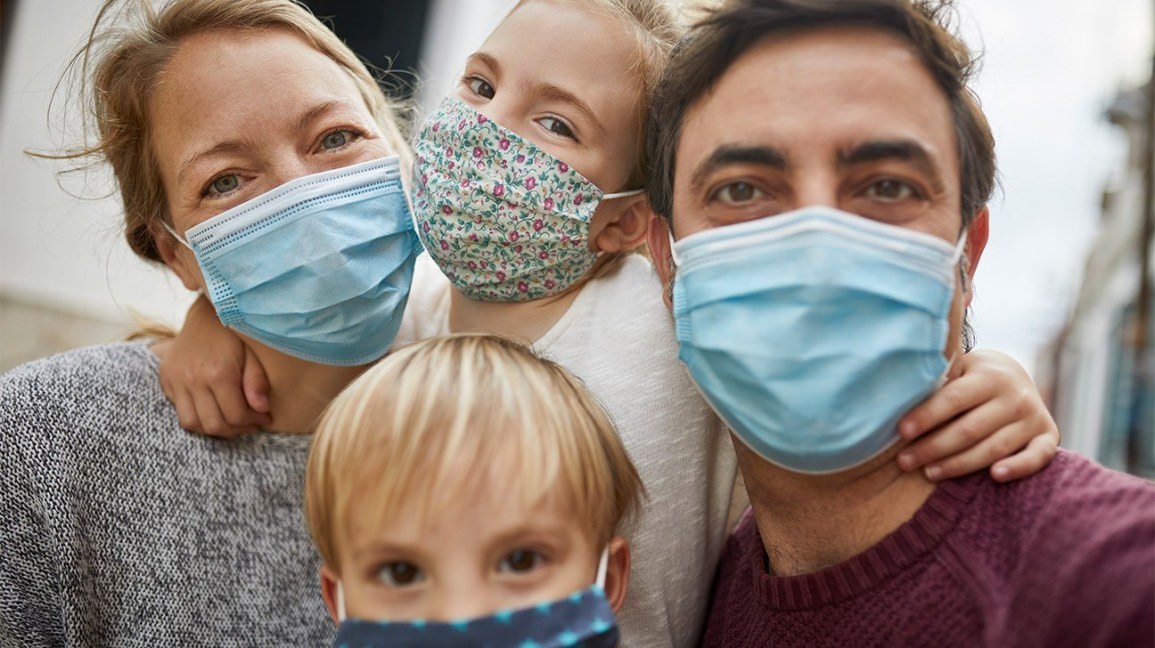A Healthier Tomorrow – Do Masks Matter?
A Healthier Tomorrow – Do Masks Matter?
Imagine a Healthier Tomorrow
By Alison Page, CEO Western Wisconsin Health

In the past two weeks, I have been asked by several people, “Do you think wearing a mask really helps anything?” It seems that many people are very confused, not just about masks, but by the entire topic of how to prevent the spread of COVIOD-19 when navigating public spaces.
This past weekend as I was preparing food for a backyard picnic, I ran to the Family Fresh store in River Falls, where I live, for a few items. I was very glad to see the care being taken to prevent the spread of COVID-19. They have wipes to clean your cart before using it. There is signage on the door recommending masks. There is a plan inside the store to support social distancing; they have one-way aisles and marks on the floor every six feet. All employees wear masks. There are plexiglass barriers at the check-out counters. Most of the customers were wearing masks when I was there and following the social distancing system well. Of course, there were a few people, not wearing masks, going the wrong way on the one-way aisles. Really people? I was masked up and, on a mission, to get in and out as fast as possible. The mission hit a glitch when the store did not have all the ingredients I needed for my favorite bean dish. So, off I went to Dick’s IGA. I noticed right away when I got there that the guy taking carts in from the parking area was not masked. Inside, no arrows on the floor and almost all employees were not wearing masks. It seemed the only thing they had in place to prevent the spread of disease were barriers at the checkout areas. So, I asked the young lady checking out my groceries who owned the store now, and why that person was not taking more care to protect the employees and the customers. She said they may wear masks if they like, but they are not required. Really?
A cruise through Baldwin produced similar, mixed results. Kwik Trip – all employees masked, most customers not masked. Nilssen’s grocery store – none of 11 employees were wearing masks, and about half the shoppers, mostly older people, were sporting masks.
Apparently, there are a lot of nice, intelligent people out there who are just not seeing the importance of wearing masks. So, let’s clear a few things up.
Why should we wear masks? There are two reasons you should wear a mask. First, is to protect others from you. Second, is to protect yourself from others.
How do masks prevent the spread of COVID-19? The virus sets up camp in your nose and mouth. That is where it comes into your body, mainly, and that is where it spreads from. The virus can be building up in your nose and mouth even if you have no symptoms of illness. When you breath in, you can inhale the virus that is floating in the air. When you exhale, talk, cough or sneeze, you can spread the virus by propelling it into the air. Wearing a mask blocks the virus from entering your nose or mouth and blocks it from spreading from you into the air around you. It is that simple.
What kind of mask is best? Masks are not perfect. The N95 mask is the best as it blocks 95% of the particles 0.3 microns or larger from entering you body. Given the shortage of these types if masks, they should be reserved for use by health care workers and people with underlying health conditions who are at serious risk of complications if they get the virus. Surgical masks and cloth masks can also be very good. One study found that for protecting yourself, N95 masks were about 99% effective, surgical masks 75% effective, and a cloth mask about 67% effective. Some researchers speculate that even lowering the amount of virus you inhale will help reduce the chance of severe illness.
Does everyone need to wear a mask for us to prevent the spread of COVID-19? The best-case scenario is for everyone to wear a mask when in proximity to others, especially when indoors. Scientists and academics from Europe and California recently built a computer simulation demonstrating that if 80% of the population wore masks, infection rates would plunge more than 90%. Don’t believe scientific studies? Well then, just look at the facts. Countries across that globe where mask wearing is common have seen dramatically lower levels of infection and death from COVID-19. South Korea, for example, has 12 million more residents than California, and yet has seen 282 deaths from COVID-19 compared to California’s 6,100.
So, the answer to the question many have asked is, “Yes, wearing a mask will really help. It will help prevent illness and it will help save lives.”
